News
PureCircle notes rise in stevia-enabled product launches
3 Apr 2018Global launches of beverage and food products containing stevia have grown steadily since 2012, and in 2017 alone, increased more than +10% vs. 2016, the company notes, citing data from Mintel.

PureCircle has reported that the use of stevia leaf sweetener in beverages and food products continues to expand.
Global launches of beverage and food products containing stevia have grown steadily since 2012, and in 2017 alone, increased more than +10% vs. 2016, the company notes, citing data from Mintel.Launches of beverage products containing stevia grew 11% from 2016 to 2017, while launches of food products containing stevia grew 10% from 2016 to 2017. Top categories for launches containing stevia in 2017 included snacks, juice drinks, dairy, carbonated soft drinks and confectionery.Producers of food and beverage products designed for kids (age 5-12) are also making more use of stevia, PureCircle notes, as it enables them to formulate products with no- or reduced-calories using a plant-based sweetener. In 2017, launches of products containing stevia with a claim for kids (aged 5-12) increased 16% from 2016.According to PureCircle, major companies launching products with stevia leaf sweetener last year included Calbee Foods, The Coca-Cola Co, Groupe Danone, Grupo Bimbo, Kraft Heinz, Nestle, PepsiCo, Seven & i Holdings; and Unilever. Stevia is a zero-calorie sweetener made from a plant, explains the company, while other major zero-calorie or high-intensity sweeteners (aspartame, sucralose and acesulfame potassium) are not. The usage of stevia leaf sweeteners has grown dramatically, PureCircle points out. In 2012, stevia was used in 16% of food and beverage products launched with high intensity or diet sweeteners. By 2017, that number had risen to 28%. Aspartame, however, is becoming less widely used, the company says. In 2012, aspartame was used in 36% of new foods and beverages utilizing high intensity sweeteners. By 2017, that number was down to 25%. That means, looking at foods and beverages launched with high intensity sweeteners in 2017, plant-based stevia was used more than aspartame, according to PureCircle.Beverage and food product launches with stevia, the company continues, are occurring worldwide with all global regions participating. The top two regions were Asia/Pacific (40%) and Europe (22%), followed by Latin America, North America and Middle East/Africa.Related news

UK to ban junk food TV advertisements before 9pm
3 Oct 2024
In a bid to reduce childhood obesity, the UK government has introduced a policy, coming into effect on 1 October 2025, banning junk food advertising on television before the 9pm watershed.
Read more
Which food and beverage brands made TIME’s Most Influential Companies list?
2 Oct 2024
Chickpea pasta, prebiotic sodas, food boxes, non-alcoholic beer, and a soil carbon marketplace are the specialties of the five food and beverage brands that earned a spot on TIME’s 2024 list.
Read more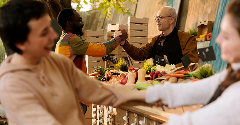
New environmental food scoring standards emerge
30 Sep 2024
EIT Food and Foundation Earth collaborate to launch environmental food scoring for products entering the global supply chain.
Read more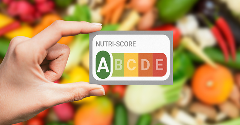
Danone removes NutriScore from products
20 Sep 2024
Following an algorithm update that gives some of its sweetened drinks a worse score, Danone has removed the front-of-pack label, NutriScore, from all of its products – putting profit before public health, say campaigners.
Read more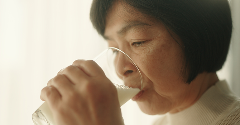
Nestlé develops a new fat reduction method for dairy ingredients
26 Aug 2024
A Brazil-based Nestlé research and development team has developed a way to reduce the fat in milk powder by as much as 60%, without impacting the key characteristics that consumers enjoy.
Read more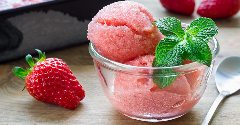
Better Juice expands its range to sorbets
16 Aug 2024
Food tech startup Better Juice has developed a technology to reduce the sugar content in fruit sorbets. The process retains the natural vitamins, minerals, and flavours of fruit, while offering manufacturers an easy-to-implement and scalable solution t...
Read more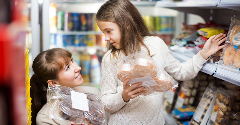
German study reveals high sugar, fat, and salt levels in children's foods
13 Aug 2024
The food industry is making slow progress in reducing the high levels of sugar, fat, and salt in German food and beverage products marketed to children, according to the Max Rubner Institute (MRI).
Read more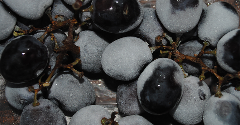
Swedish court overturns prohibition on winery’s use of imported frozen grapes
12 Aug 2024
Swedish company Drood Winery has successfully challenged the Swedish Food Agency’s decision to prohibit the production and sale of their product made from frozen grapes imported from Iran.
Read more
Paris Olympics: Food and beverage brands champion health, fun, and sustainability
5 Aug 2024
Food and beverage brands are aligning with the Paris Olympics 2024 Food Vision, which emphasises sustainability, local sourcing, and plant-based diets.
Read more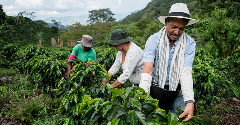
The coffee supply chain is failing farmers, says Solidaridad
30 Jul 2024
The coffee industry’s economic model means its profits do not reach farmers, despite there being enough value to be shared all along the supply chain, according to a new report by Solidaridad Network and IDH.
Read more